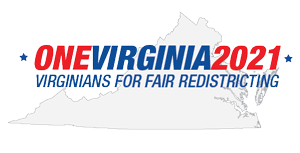
Brian Cannon, Exec. Dir. of OneVirginia2021
I wasn’t sure we should upload a case to CrowdJustice. For a number of reasons I thought it might not work. But a supporter recommended I look into it and so I stayed up one night poking around on their website, reading about their approach, seeing their successes…and I signed my organization up. I figured we could dip our toe into the water and see what happened.
The result of that decision was the biggest fundraising campaign our organization has ever had – over 1,000 donors and over $50,000 raised. It was a major success for us, and among the first examples in the United States of how CrowdJustice can help nonprofits power impactful action in the courts. I wanted to share the insights we gained about crowdfunding for our litigation in hopes reading about our experience will help other. You can also see details about our legal case on our CrowdJustice case page.
My Concerns
Never having run a crowdfunding effort, I had several specific concerns about jumping into this type of fundraising. (1) I was worried we would not hit our target and my team and I would have wasted a lot of time and energy for nothing. (2) I was nervous about cannibalizing my existing donor base – and I really wanted to use this experiment to grow that base if possible. (3) I was kind of annoyed that the platform took a 5% fee.
(1)
Fearing failure is totally normal. When it comes to tackling something new, like crowdfunding for a legal case, fear of failure can drive you to quickly learn as much as possible and work hard to promote your case. Crowdfunding is systematically designed to motivate you and your donors to stay energized – nothing like a hard deadline and an all-or-nothing funding goal to get the juices flowing! While I recommend embracing that fear of the unknown to keep you on your toes, there were a couple other things that helped us greatly:
- We set a fairly modest goal of $5,000 to start. Having looked at the range of CrowdJustice cases that had succeeded in the past, we felt like this was certainly achievable within 30 days.
- We tapped into CrowdJustice’s knowledge base. We knew CrowdJustice was invested in our success and made constant use of their advice to guide our strategic planning.
(2)
We are an established organization with hundreds of donors who maintain a good history of giving. We have several pots of money and litigation is just one aspect of our strategy to end gerrymandering in Virginia. So I was more than a little concerned that going all-in on this CrowdJustice effort with my current donor base could cannibalize my other fundraising efforts. At the same time, however, we hadn’t done a good job of tapping into our Facebook followers for donations and encouraging true peer-to-peer giving. In fact, we were pretty terrible at getting people to donate by leveraging their own social networks and I really wanted to improve our track record.`
So with a goal of growing our donor base via social media, we focused our energy exclusively on Facebook for two weeks. It worked. Engagement and conversion through Facebook really took off for us as we broadcast information about our crowdfunding efforts. Facebook (and social media generally) is built for this type of fundraising - leveraging platform capabilities in combination with engaging messaging can help organizations like ours tap into new networks. More on that in a future post.
(3)
About that 5% fee. I hope you did your homework and read that on CrowdJustice’s website already (if you’re a non-profit executive, you may wrestle with that number a bit, too). We’re charged with being penny-pinchers in this sector - honestly, I thought about asking them to do 4.5%.
Having now been through the process, gained a large group of new supporters who we couldn't have reached on our own and learned a great deal about how to effectively reach outside of our network moving forward, it would’ve been worth it at twice that percentage.

Looking Back
CrowdJustice was a great partner – responsive at odd hours and quick to address issues we raised. We pushed them to provide things their platform wasn’t yet built to offer – and they welcomed our ideas. It was a true partnership that tapped into a style of fundraising we couldn’t have done on our own and I am personally very glad we took the risk. It’s why I’ve agreed to write this post – it’s worth it.
Moving forward I plan to write other posts about our goal setting strategy, the rollercoaster ride of getting to $50k, and some other tips and tricks we learned along the way. We weren’t flawless, but we did a few things right and I’m happy to share as much as I can about our experience.
Brian Cannon is the Executive Director of OneVirginia2021, a 501(c)(3) organization dedicated to fighting for fair political redistricting in the Commonwealth of Virginia
Have a legal case that could benefit from crowdfunding?